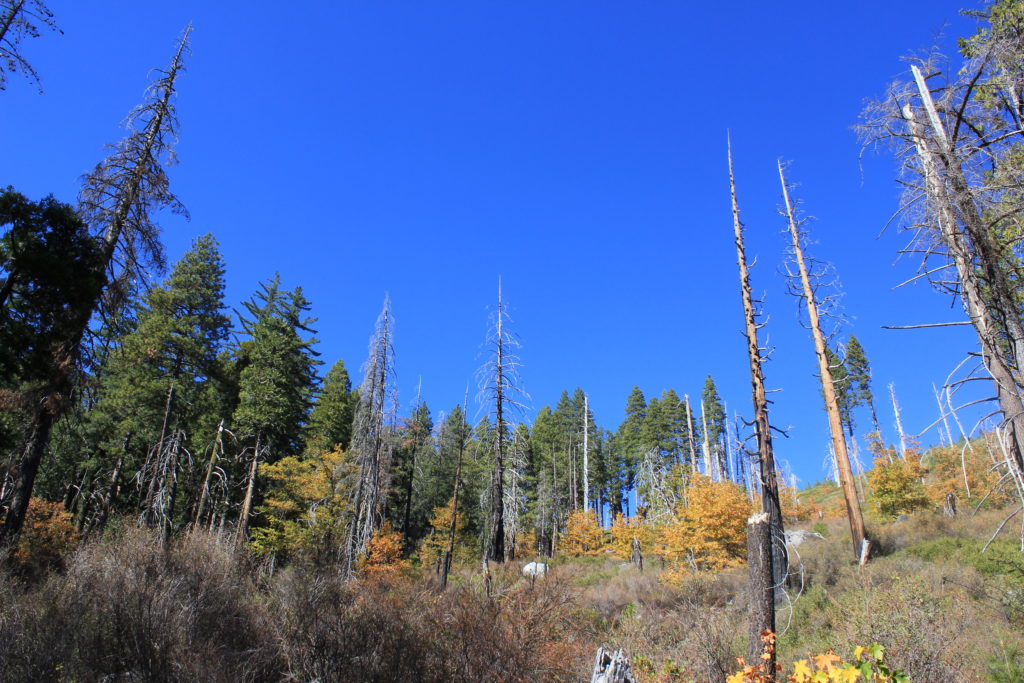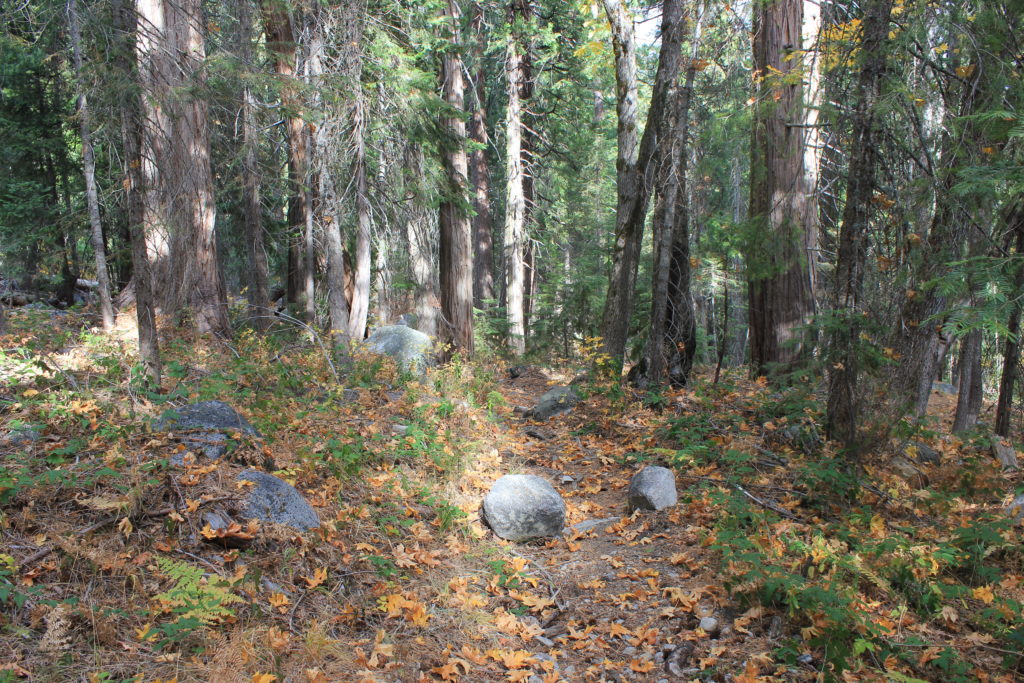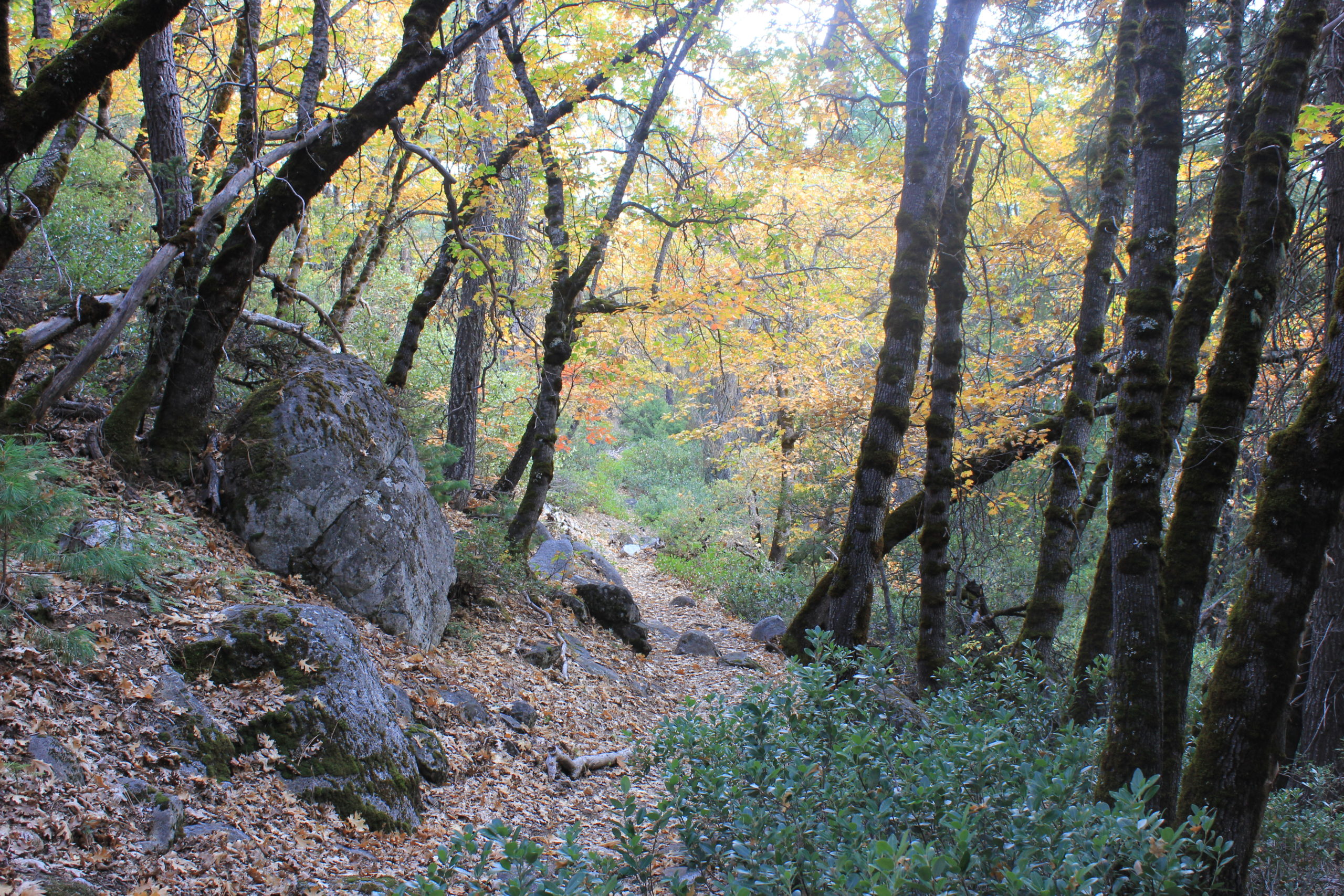“We become better versions of ourselves in the mountains.”
– Robert MacFarlane
When the intrepid Canadian Geese begin to appear in the sky above my home, navigating their genetically programmed routes south for the winter, I begin to think of my own annual, instinctive, migration to the Bear Lakes. Their strident honking, and the earnestness of their flight, awaken in me a desire to follow them, figuratively, as they wander the skies. Along with yearnings for alpine bliss come the usual worries – both real and imagined – that I may not be able to visit my personal paradise this year. Can I afford to go? Each year finds me deeper in debt than the one before, and working harder to keep my head above water. I don’t get paid for time away from work, except in currency that is more important than money. The real question should be: can I afford not to go?
Another annual recurrence tempers my enthusiasm. California has always had a dry climate in my lifetime, with drought and wildfires an integral part of the natural cycle that passes for seasons. In the last ten years, however, an exceptionally severe drought has killed millions of trees, greatly adding to the available fuel. Man-made climate change has sucked the life-giving moisture from the atmosphere, transforming the woodlands into tinder that is ripe for the spark of retribution. The cruel sun is punishing us for our sins of carelessness. Now, all up and down the western edge of the North American Continent, the forests are tragically burning. These are not the normal sorts of forest fires that Smokey the Bear warned us about when we were kids. These are hellish infernos, spawned from the dry, diabolical hot air, and fed by the accumulated debris of generations of timber mismanagement.
Earlier in the summer, the largest fire in the recorded history of California started innocently enough, from someone pulling over to fix a flat tire near Whiskeytown Lake. The sparks from the grinding tire rim fell in the tissue-paper grass, and within hours, a raging inferno raced out of control towards Redding, wiping out hundreds of buildings in swirling cyclones of wildfire that created their own oxygen feeds. Then, capriciously sparing the rest of the city, the ravening flames reversed direction and crawled back to the west, eventually burning all the way to Lewiston below the Trinity Lake dam. Highway 299 was closed for most of a month, and hundreds of thousands of acres of forest were utterly destroyed. The resulting pall of smoke polluted the air of half the state, and drifted 3,000 miles east to Maryland. That was just the largest fire. Dozens of others burned out of control in our state, as well. One near Yosemite closed the park for two weeks, and another one closer to my home rivalled the maelstrom in Redding for size and ferocity. The smoke never really went away in the Bay Area, and the geese were now flying through particles of burnt trees that originated in their homeland in British Columbia, 2,000 miles to the north, where over 500 forest fires have caused the entire province to be declared a disaster area. It seemed as though half a continent was going up in smoke! On a trivial scale of inconvenience that’s embarrassing when compared to the vastness of such destruction and tragedy, the visibility in the Trinity Alps was likely to be very poor for backpackers this year.
Worst of all, my knees weren’t getting any better. I had hoped I could avoid more surgeries, but they continued to be painful and restricted in range of motion nearly all the time. Lately, I had been wearing knee braces during my waking hours, and sometimes employed the assistance of crutches when venturing out for longer treks – like doing laps around a mall with Joy. If I had to use crutches just to go shopping, the notion of schlepping more than 20,000 painful steps up a hot, dusty trail to gain over 3,000 feet in altitude – while carrying a pack on my back – seemed rather Quixotic and daunting. I knew I’d eventually require surgery to repair the cartilage I could feel moving around inside my knees like a bag of rocks, but I hoped to get in one more trip to the lakes before grinding through another year of rehab… possibly two.
What was hardest to endure were the mental tapes I’d recorded over the years; playing back in my head. They’re telling me that both my knees are lemons, and will probably need total replacement in my lifetime (a prospect that still seems medically fantastic, even though the procedure has become routine). The cost of such an operation, and the subsequent need for rehabilitation, would likely prevent me from experiencing my mountain meditation for many years… if not permanently. These debilitating soundtracks played on an endless loop, reminding me that I was now a cripple – officially unable to do what I wanted to do – and should consider myself lucky just to be able to live in a 2-story house! Even getting up the stairs was becoming a chore that made me feel as though I needed trekking poles and ropes, so hauling my carcass up the side of a mountain was a lofty goal in more ways than one.

I had it all planned. The Autumnal Equinox would fall on a Saturday, with a full Harvest Moon on Monday. I was going to hike up Thursday, stay through Monday, and return on Tuesday. But then I hurt my right knee again: stupidly moving some heavy potted plants during the summer. It never healed right, and I couldn’t afford to injure it further. That was the same knee that took a shot from the metal blade guard of a table saw, when it kicked off a couple years back. The much-abused joint already needed some work if it was going to last a few more years. Sadly, I had to delay my plans, enjoying the finest astronomical weekend of the year in a plywood box in Bahia instead of under the stars at The Altar. Naturally, the weather was perfect!
At night, while trying to fall asleep with my headphones on to block out the drone of a nearby highway, I used my imagination to transport myself up the trail to my beloved stargazing haven in the wilderness. In my mind’s eye, I ascended the difficult trail with ease, and the varied stages of terrain flickered like a movie in my head. The longer it has been since I had to bust my butt over roots and rocks, and fight through gravity and scratchy bushes to reach the stars, the prettier the trail appeared in memory. It was a perfect day in my vision. Cerulean waves of atmosphere flowed across the sky. I drifted through the enchanted forest like a benevolent spirit, blessing the Twin Towers as I passed between them. I stopped at the magical, sluiced pools of water below Big Bear Lake, and gazed eastward at the stern visage of Queen Shasta with her crown of thunderclouds. The rugged route to the south and up to Wee Bear Lake was blissfully easy, as I floated painlessly above the jumbled boulders and grasping manzanita in my dreams. I was so free, and everything was so easy! Arriving at the portal of granite, and passing through to glimpse the bonnie wee tarn was one of the highlights of my fantasy. An appropriate fanfare of celestial harmony greeted me, as I waved to the crowd of picturesque pines, firs, and hemlocks across the tiny lake. Of course, in my vision I had the whole place to myself; without another soul for miles. Once again, I was home.
The details of setting up camp, eating, and caring for my body weren’t important to my reverie. Instead, I glided along the familiar shores of Little Bear Lake, following the meandering anglers’ trail from one perfect viewing platform to the next. Humbly, I got reacquainted with the shadowy spirit faces in the massive granite wall that upsurges behind the far shoreline. The surface of the emerald green water sparkled like gemstones in the late afternoon sun. Awestruck, I stood and stared for the longest time, as the amber rays of light shifted with the setting sun, weaving an ambient blanket of silent twilight over the entire basin.
I was envisioning the last days of summer, and how the planet’s axis becomes perfectly aligned with the plane of its orbit; a Whirling Dervish of blue and white suspended in infinite black space. For a moment the day and night are of equal length, then the planet tips and falls into its long slow slide towards winter. That night, the moon was going to be nearly full, and I hoped it wouldn’t block out all the stars. The ghostly shapes of boulders stood out starkly against the deep purple earth. I thought of the omnipresence of the moon, wondering where it might be on the other side of the world, and thinking of the lovers and dreamers gazing at its fullness from other lands. I rested in make-believe shade frequently, saving my strength to stay up as long as possible and enjoy the best part of my vision. It was rather metaphysical to dream about sleeping, but the irony was lost on me at the time. From my imaginary spot on the Elf Throne, I could feel the sun circling around behind me, barely visible as it slid behind the rim to the west. It was time to head back to camp.
Continuing my fantasy, I meandered down to The Altar for the night’s festivities. Every step of the camp trail, and every branch that caressed my skin as I passed, was known in my mind like a 3-D map. With trembling reverence and anticipation, I approached The Altar. I remembered the moon would rise in the east, where Queen Shasta was still dimly visible in the fading lavender twilight. I took a seat on the peculiarly flat, sacred rock, and found it was much more comfortable in my dreams. Chipmunks rustled in the bushes nearby, and a slight breeze ruffled my hair, and there she was – majestic Luna – peeking her bright eye above the southern slope of the great mountain! The scuffling sounds abated, and even the wind paused to witness the event. Deliberately, with solemn purpose, the ochre orb pushed into the deepening sky, as if she didn’t want to let the darkness win. As the full cantaloupe circle cleared the land and broke free into the night, I felt as if I was rushing headlong into a tunnel of orange light, surfing on a crust of rock that was racing directly at the moon. The reflected brightness from her sun-blasted surface was almost too penetrating to gaze upon; mesmerizing in its ability to bypass my retinas and glow softly on the surface of my brain. As sister Luna ventured higher into the sky, I finally turned away from her radiance, and let my eyes adjust to the dimming atmosphere. Her ephemeral luminescence illuminated the landscape, with the swirling, silver glow of tiny moonlight fireflies in a phosphorescent mist. Sawtooth loomed with ghostly prominence, inviting my hand to pass right through it…
I woke up in Bahia, and realized with supreme disappointment that my brain had tricked me into thinking I was blissfully watching the moon in Trinity. It was still dark. Through my dirty window, I watched a sad pumpkin of a Harvest Moon appear between my neighbor’s roof and chimney, lifting herself through a tangle of headlights and power lines to reach a safe place in the sky from which she could display her full majesty. Once again, I wondered why people don’t just fall down in awestruck bewilderment every time the moon rises. It’s such a constant reminder that we are so small, and suspended in a universe that is mostly empty space, that it should strike fear and wonder into every heart; every single night. Instead, we are soothed with scientific facts and placated with clichés about our phenomenal lunar sibling, and forget her improbable magnificence. As always, the two heavenly bodies danced and twirled in mutual allurement around their star, while clueless humans looked for a parking place near the entrance to the mall, or the sports bar.

As the days grew shorter, and my aperture of opportunity closed, the rationalizations began to set in. I needed to convince myself that I could make it up to the lakes, even with my deteriorating legs. After all, I still had my trusty knee braces, and those newfangled trekking poles that made such a difference last year. On the other hand, I wondered, maybe I should stay closer to home, in case my range is limited? There are a number of “secret spots” attainable – even to the disabled – in Pt. Reyes and the Golden Gate National Recreation Area, right here in Marin County. Many of them have spectacular scenery, and there are always ways to get away from people. The temperature would be a lot warmer, too. It gets down into the 30s up at the lakes this time of year. Joy could drop me off at Shafter Bridge or thereabouts, and pick me up when I’m done, giving me many more hours to enjoy without having to drive. There would be raccoons, coyotes, and homeless encampments to contend with instead of bears. All in all, Pt. Reyes would be easier, warmer, safer, and more convenient. Those were exactly the reasons why it wasn’t my first choice! When I thought of the incredible difference in scenery, and the sense of being one with a true wilderness, there was really no comparison. Pt. Reyes is tame and beautiful, but the Bear Lakes are ravishingly wild, and the primal sentience of the land is much stronger.
Regardless of my ambivalence, this would be the latest I had ever visited the lakes by half a month, and an early freeze could make things rather uncomfortable. Which is exactly what I needed. The numbing confines of domestic comfort had dirtied up my windows, and it was time to clean them well, and let in some light. A few extra pounds of warm clothes were a small price to pay for recharging the batteries. On the other hand, the weather reports were dicey, with a prediction of rain in the Trinity Alps. I might need to compromise anyway. On the path to enlightenment, one must learn to embrace the obstacles at least as much as the destination.
A week later, the pendulum swung in the other direction. The weather reports improved considerably: going from rain to partly cloudy, until it was predicted to be in the seventies and partly sunny (at about 2,500 feet). There was likely to be a weak low pressure system moving through, and anything can happen in the mountains. Dimari still had his trusty Civic for me to borrow, so I arranged the time off work… at the loss of three days’ pay. I decided to trade the hours of my life for real currency; not counterfeit. I could be at Little Bear Lake for three whole days, with two more to go from house to lake, and back again. I fantasized about shortcuts. Wouldn’t it be cool if the granite portal at Wee Bear functioned similar to the transformer room on the Enterprise? “Beam me up, Scotty!” I studiously planned another minimalist trip in terms of gear. I was trying to get away from stuff, not bring it with me! Realistically, I’d have to make allowances for chilly autumn temperatures at a mile of altitude. I’d need a little more food and clothing to keep me warm. Last year, I felt like I brought way too much food, although it was much less than I usually eat at home. Hot soups would be nice, and more tea. I gathered a few meager supplies and packed as lightly as possible, taking only the essentials. My pack weighed just 32 pounds with trail water. Various sundry items would doubtless push it close to 40 pounds, but I was stoked. It would be a much lighter load than those I had packed over 40 years before! As the now-gibbous moon rose above the rooftops again, still orange from the smoke in the air, I asked it to send a message of help for me…
“My help is in the mountain
Where I take myself to heal
The earthly wounds
That people give to me.
I find a rock with sun on it
And a stream where the water flows gentle
And the trees which one by one give me company
So I must stay for a long time
Until I have grown from the rock
And the stream is running through me
And I cannot tell myself from one tall tree.
Then I know that nothing touches me
Nor makes me run away.
My help is in the mountain
That I take away with me.”
— Nancy Wood

